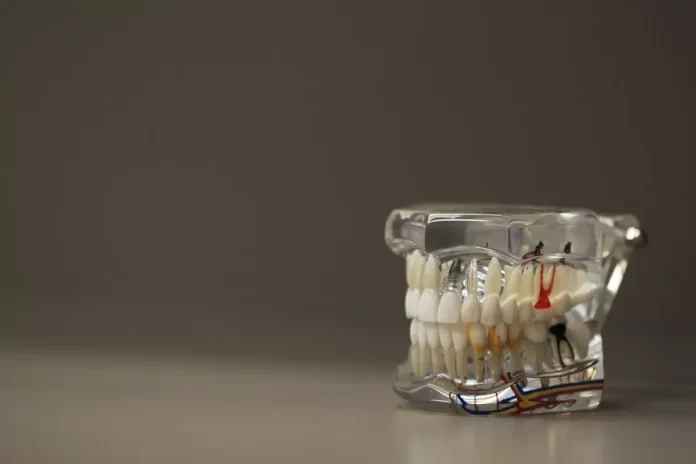
Experiencing tooth pain can significantly disrupt your daily routine. Typically, a toothache does not resolve on its own as it often indicates an underlying issue that requires treatment. While it could be a cavity or exposed tooth root due to gum recession.
If you’re experiencing tooth pain or sensitivity, you may be wondering if you need a root canal. A root canal is a dental procedure that is used to treat a damaged or infected tooth. However, not all tooth pain requires a root canal.
Take our quiz to find out if you may need a root canal and learn more about the signs and symptoms of a damaged or infected tooth. With this information, you can take the necessary steps to protect your oral health and prevent further damage or infection.
Quiz: Do You Need a Root Canal?
Are you experiencing persistent pain in your tooth, especially when you bite down or apply pressure?
The primary and extensively reported symptom of a root canal is persistent tooth pain. If the pain persists for more than 48 hours and does not seem to improve, it is advisable to schedule an appointment. Determining the cause of tooth pain is crucial, even if it is not due to a root canal infection. Tooth pain is always a warning sign, indicating the need for a dental visit.Do you feel sharp pain or sensitivity to hot and cold temperatures, even after the sensation is removed?
Tooth sensitivity is a common symptom that patients do not typically associate with root canal treatment. It is a reliable indicator of inflammation of the inner nerve in the tooth root. A tooth infection weakens the outer layer of the tooth and creates cavities.Have you noticed swelling or tenderness in the gums around the affected tooth?
Root canal infections can cause swelling in the area around the tooth and gums. However, this inflammation can also spread to the lymph nodes. Swollen lymph nodes near the teeth, face, or neck indicate an infection in the body.Has the affected tooth become discolored or darkened?
If an infected tooth is not treated timely, it can die as the pulp inside begins to decompose. This process can cause the affected tooth to darken in appearance.Have you seen a pimple or bump on your gum near the affected tooth?
A pimple on the gum line that is white, yellow, or green, and may or may not cause swelling, could indicate the beginning of an abscess after a root canal treatment.Have you recently experienced trauma to the affected tooth?
Trauma can harm the pulp and periodontal tissues of the tooth, which can cause infection and root resorption . Trauma can also make the root of the tooth crack or break, which can affect its long-term health . So, if someone has had trauma to the affected tooth, they may need a root canal procedure to take out the infected or damaged tissue and seal the tooth .Have you had a deep cavity that has reached the pulp of the tooth?
A root canal is needed to take out the infection that has reached the tooth pulp from the cavities and bacteria in the tooth enamel.Have you had a filling or crown that has recently fallen out or become loose?
A tooth that has had a root canal procedure usually gets a filling or crown to keep it safe and strong . But if the filling or crown gets loose or falls out, it can let bacteria and infection get into the tooth, which can harm the root canal and make it hurt and sensitiveIs There Pus Coming Out Of Your Teeth?
A very alarming sign that you need urgent dental care is when you see pus and discharge coming out of your gums. Patients usually say they have a bad taste in their mouths, near the infected area. This is the taste of the discharge and you should tell your dentist right away if you have this.Have you experienced any other symptoms, such as fever or fatigue?
A fever may occur in some patients who have a root canal infection. This means the infection has become severe and caused an abscess under your tooth. Your body tries to fight off the harmful bacteria and this makes you feverish.Do you feel bad breathing?
Bad breath is another symptom of a root canal that may not be obvious. It could also mean you have gingivitis, but it shows that there are too many bacteria in your mouth. These bacteria can cause cavities and root canal infections, and they can make your breath smell bad because of their toxins
Understanding Your Results
If you answered “yes” to one or more of these questions, you may need a root canal. However, only a licensed dentist or endodontist can make a proper diagnosis. It’s important to schedule an appointment with your dentist if you are experiencing any of these symptoms.
What to Expect During a Root Canal
If you do need a root canal, you may be wondering what to expect during the procedure. Here’s a step-by-step guide:
- Your dentist or endodontist will numb the area around the affected tooth with a local anesthetic.
- They will make a small hole in the top of the tooth to access the pulp inside.
- They will use special tools to remove the damaged or infected pulp from inside the tooth.
- The inside of the tooth will be cleaned and shaped to prepare it for filling.
- A unique material will be used to fill the inside of the tooth, and then a filling or crown will be placed on top to protect the tooth and restore its functionality.

Aftercare for Root Canal
After a root canal, you may experience some soreness or sensitivity around the affected tooth for a few days. Your dentist or endodontist may recommend taking over-the-counter pain relievers or prescribing medication to help manage any discomfort.
It’s essential to take good care of your teeth and gums after a root canal to prevent further damage or infection. This includes practicing good oral hygiene habits like brushing and flossing regularly and visiting your dentist for regular check-ups and cleanings.
FAQs
Conclusion
If you’re experiencing tooth pain or sensitivity, it’s essential to schedule an appointment with your dentist to determine the best course of treatment. While a root canal may seem daunting, it is a necessary step to protect your oral health and prevent further damage, infection or traumatic dental injuries.

